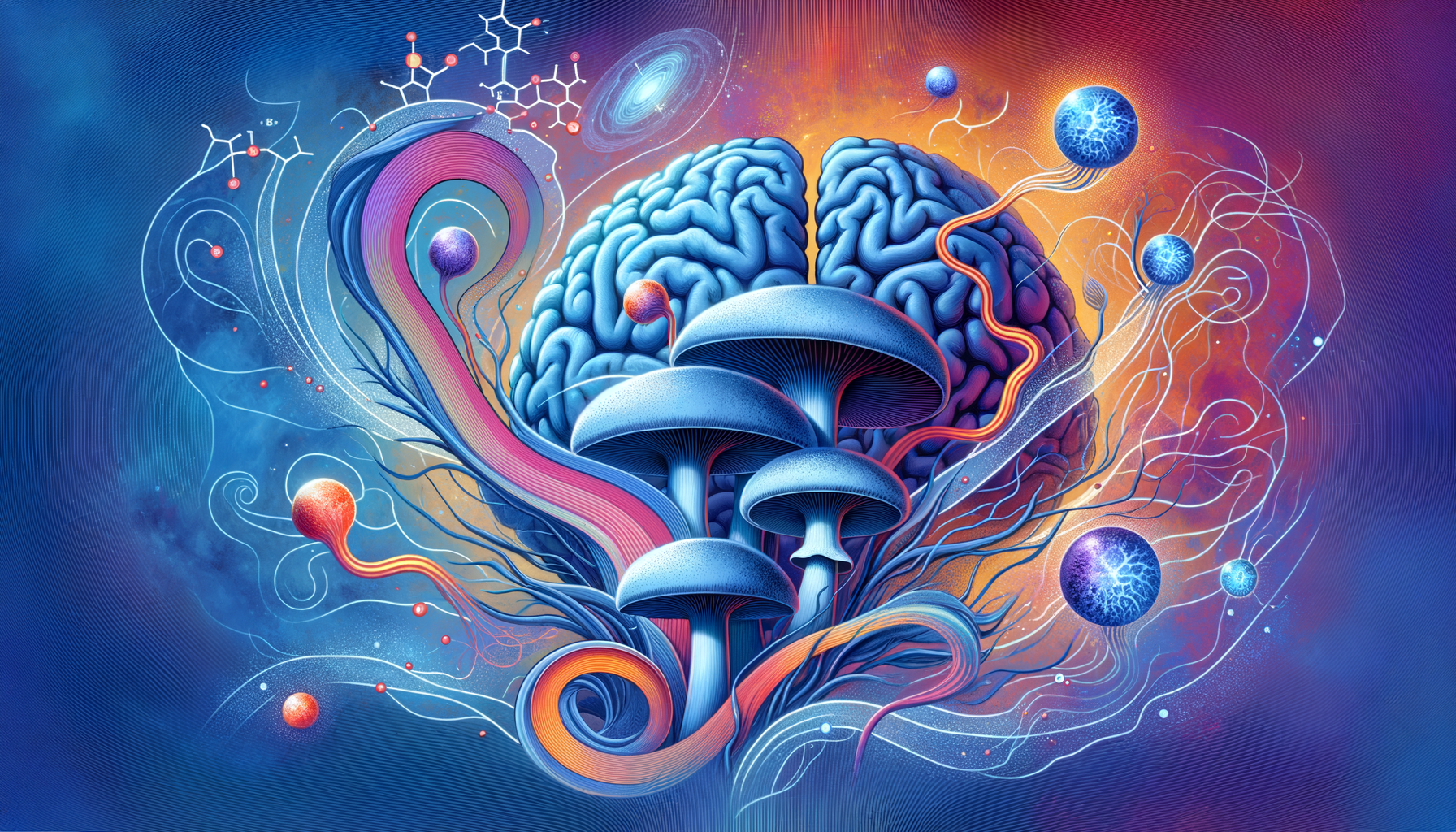No high, big help? Not yet. LSD and psilocybin show anti-inflammatory signals in lab studies, but there’s no solid proof in people—and the “without a trip” promise doesn’t hold for these drugs today.
The most surprising reveal The headline claim falls apart at the start: using LSD or psilocybin “without psychoactive effects” is not supported by human evidence. In clinical trials where psilocybin helps depression, people take a full psychedelic dose and experience strong subjective effects; that is part of the treatment model, not a bug. Early work on new, non-hallucinogenic 5‑HT2A–targeting compounds exists—mostly in animals—but this does not prove that classic psychedelics can tame inflammation in people without a trip. JAMA
What the lab really shows Think of it as a two-act story:
- Act 1: In cells and animals, 5‑HT2A agonists can cool inflammation.
- In mice, a prototypical 5‑HT2A agonist (R)-DOI blunted TNF‑α–driven inflammation and lowered vascular inflammation and cholesterol. Review, PMC
- Psilocybin/psilocin reduced pro‑inflammatory markers (TNF‑α, IL‑6, IL‑8) in microglia and a human 3D gut‑tissue model. PubMed
- Act 2: In people, the signal fades.
- A pilot study in healthy adults found no significant changes in hsCRP, TNF, or suPAR 24 hours after a single psilocybin dose. That argues against a robust, immediate anti‑inflammatory effect in humans—at least under those conditions. PubMed
Condition by condition: what’s real, what’s reach
- Depression
- Verified: A single 25‑mg psilocybin dose (with therapy support) can reduce symptoms in major depression. The leading explanation is 5‑HT2A–mediated neuroplasticity, not a proven anti‑inflammatory effect. JAMA
- Important correction: This benefit comes with a psychedelic experience, not “without” it.
- Asthma
- Partially supported—preclinical only: 5‑HT2A agonists dampened inflammatory responses in airway models. Translation to patients is untested. Review, PMC
- Arthritis
- Speculative: No clinical trials with LSD or psilocybin exist for arthritis. Signals in other inflammation models (like asthma) hint at a pathway but don’t prove benefit. Narrative review, PMC
- Heart disease
- Mixed and not shown in humans: In a mouse model (ApoE‑/‑), (R)-DOI reduced vascular inflammation and cholesterol. But there’s a safety shadow—drugs that stimulate the 5‑HT2B receptor have, in people, caused heart‑valve problems; LSD binds 5‑HT2B with high affinity. Any heart‑health claim needs careful, long‑term safety data first. Structural/valvulopathy review, PMC
Key findings at a glance
- Bold truth: Classic psychedelics show anti‑inflammatory effects in cells and animals. PMC
- Big caveat: Consistent anti‑inflammatory effects in humans are not yet demonstrated. PubMed
- Clear correction: “Without psychoactive side effects” is not supported for LSD or psilocybin in today’s human studies. JAMA
- Real‑world win (different mechanism): Psilocybin can help depression at psychedelic doses. JAMA
- Open questions: Arthritis and “heart problems” claims are speculative; safety (notably 5‑HT2B) must be weighed. PMC
How we know—and what we don’t
- Verified by:
- Preclinical studies showing 5‑HT2A‑linked anti‑inflammation, including TNF‑α pathway suppression and cytokine reductions. PMC review, gut model
- Clinical evidence for psilocybin in depression, using hallucinogenic dosing. JAMA
- Not yet shown:
- Reliable changes in inflammatory biomarkers in humans after psilocybin or LSD. Pilot study
- Clinical benefits for asthma, arthritis, or heart disease in people.
- Uncertainties:
- Do lower, non‑hallucinogenic doses of classic psychedelics reduce inflammation in patients? Unknown.
- Can newer, non‑hallucinogenic 5‑HT2A‑targeting compounds deliver anti‑inflammatory benefits safely in humans? Early animal data are promising, but human trials are pending.
The bottom line
- What’s solid: Psychedelics engage immune and inflammatory pathways in lab models. Psilocybin can treat depression—but at psychedelic doses.
- What’s overstated: The idea that LSD or psilocybin can be used as anti‑inflammatories “without a high” in humans. Benefits for arthritis or heart disease remain unproven and must be balanced against potential 5‑HT2B‑related cardiac risks.
- What to watch next: Human trials that test inflammation outcomes, dose–response (including non‑hallucinogenic ranges), safety signals over time, and condition‑specific endpoints (e.g., rheumatoid arthritis flares, airway hyperresponsiveness).
A note of caution These substances are not approved anti‑inflammatory treatments. Do not self‑medicate. If clinical evidence catches up, it will come with clear dosing, safety monitoring, and medical oversight.
Sources and further reading
- 5‑HT2A signaling and inflammation (preclinical): https://pmc.ncbi.nlm.nih.gov/articles/PMC3788795/?utm_source=openai
- Psilocybin and inflammatory biomarkers in humans (pilot): https://pubmed.ncbi.nlm.nih.gov/36545240/
- Psilocybin clinical trial in depression: https://jamanetwork.com/journals/jama/fullarticle/2808950?utm_source=openai
- Psilocybin/psilocin reduce pro‑inflammatory markers in human 3D gut model: https://pubmed.ncbi.nlm.nih.gov/40424654/?utm_source=openai
- 5‑HT2A agonists and inflammation in airways (overview): https://pmc.ncbi.nlm.nih.gov/articles/PMC8033619/?utm_source=openai
- LSD, 5‑HT2B, and heart‑valve risk context: https://pmc.ncbi.nlm.nih.gov/articles/PMC6748996/?utm_source=openai
What we’ll keep investigating
- Are there biomarker shifts at different time points or doses in patients with active inflammatory disease?
- Can non‑hallucinogenic 5‑HT2A‑pathway drugs deliver the same immune effects without the trip—and without heart risks?
- Which conditions (if any) show meaningful clinical benefit once tested in rigorous human trials?
Until then, file the “anti‑inflammation without a high” headline under promising, not proven.
